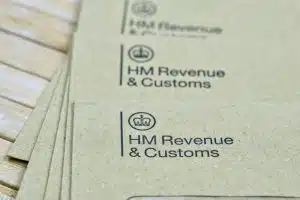
Under an enforcement notice, HMRC may issue fines and penalties; change the way the company’s or individual’s future tax payments are calculated or collected; demand repayment of any money owed; and take actions such as seizing goods.
If you receive this type of notification, it is important to seek advice quickly so you can understand your rights and obligations before taking alternative steps such as protesting the enforcement notice
What is the purpose of a notice of enforcement?
The purpose of a HMRC notice of enforcement is to ensure that debts owed to the government are paid in a timely manner. If a person or business fails to pay a debt, HMRC may take legal action to recover the money, including garnishing wages, seizing assets, or placing a lien on property. A notice of enforcement serves as a warning to the debtor that HMRC is prepared to take such action if the debt is not paid.
If you receive a notice of enforcement from HMRC, you have two options: negotiate a Time to Pay (TTP) arrangement or pay the arrears in full. It’s important to note that while other creditors must obtain a court order before sending an enforcement notice, HMRC can send one without one.
If a creditor wants to send bailiffs to collect a debt or seize assets, they must first get an Enforcement Order from the court. This requires the debtor to provide information about their accounts. Once the creditor has the order, they have the right to take enforcement action.
What are the powers & limitations of HMRC enforcement orders?
HMRC has the power to issue enforcement orders to individuals and businesses that have failed to pay a debt owed to the government, such as taxes, VAT, or other duties.
One of the main powers of HMRC enforcement orders is the ability to seize assets to recover the debt. This can include seizing bank accounts, vehicles, or other property. HMRC may also garnish wages, meaning that a portion of the debtor’s salary is withheld each pay period until the debt is paid in full.
HMRC also has the power to place a lien on property, which means that the debtor is unable to sell or transfer ownership of the property until the debt is paid. Additionally, HMRC can file a petition in court to wind up a business or declare an individual bankrupt if the debt is not paid.
There are limitations to the powers of HMRC enforcement orders. For example, HMRC cannot seize certain types of assets, such as tools of the trade or household items necessary for basic living, unless the debtor has multiple debts and the items are surplus to their needs. HMRC also cannot garnish more than a certain percentage of a debtor’s wages or seize more assets than necessary to cover the debt. It is important for individuals and businesses to be aware of their rights and the limitations of HMRC enforcement orders.
What are the outcomes of non-payments?
HMRC bailiffs will only visit your premises if you are unable to successfully negotiate a payment plan with HMRC or if you fail to pay the unpaid amount within 7 days. During their visit, the bailiffs will take an inventory of your company’s assets as part of the controlled assets agreement. You will be required to sign the inventory list, and if you refuse, the bailiffs may begin seizing your goods immediately.
If you do sign the agreement, the HMRC enforcement officers will have the right to seize your business goods at any time. It is important to note that your company’s directors will also be prohibited from selling or removing any of the listed goods, as doing so is a criminal offence that could worsen the situation.
Options available if you have been served an Enforcement Notice?
When it comes to addressing a debt owed to HMRC, you have a couple of options. One option is to pay the debt in full. Alternatively, you may be able to negotiate a Time to Pay arrangement, which allows you to pay the full tax bill over a longer period of time, typically three to six months.
At this point, it can be helpful to seek the advice of a licensed insolvency practitioner (IP). An IP can provide professional guidance and negotiate arrangements on your behalf, potentially saving you money and helping to keep your business running if it is deemed viable.
They can also assess your situation and determine if there are other options available to you, such as a Company Voluntary Arrangement or Administration, which can provide relief from creditor pressure and may be suitable for some businesses.
Read more: Will HMRC force my business into liquidation?
Finding help with an HMRC enforcement notice?
We have a long history of offering clients all around the UK expert financial guidance and help. We are aware that problems with HMRC enforcement and insolvency may prevent a firm from operating normally or even compel it to close.
To avoid unfavourable outcomes, it is crucial to obtain financial assistance as soon as you can if you are subject to an HMRC enforcement action. Our team of highly qualified financial professionals is here to assist you in resolving these problems and defending your company. To assist you in negotiating a Time to Pay (TTP) arrangement with HMRC and avert the seizure of your assets, we provide specialist advice and support.
Don’t wait to take action. Contact us as soon as you receive a notice of enforcement for the best chances of success. You can reach us by phone, email, or web form, and we are available to schedule a callback if needed.
With over three decades of experience in the business and turnaround sector, Steve Jones is one of the founders of Business Insolvency Helpline. With specialist knowledge of Insolvency, Liquidations, Administration, Pre-packs, CVA, MVL, Restructuring Advice and Company investment.
